Constipation can often be an uncomfortable and persistent issue for many individuals. It can stem from various causes, including dietary choices, stress, or underlying health conditions. While there are numerous ways to address this ailment, one of the most effective methods is through dietary modifications. Consuming the right foods can play a pivotal role in promoting a healthy digestive system, preventing or alleviating constipation. This post will delve into some key foods known to assist in this area, starting with the humble apple.
Contents
Apples
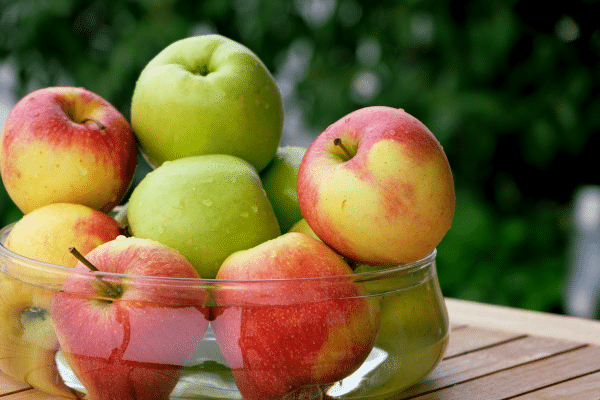
Apples are more than just a tasty snack; they are a powerhouse when it comes to promoting digestive health. Rich in a type of soluble fiber called pectin, apples not only aid in bowel movements but also enhance overall gut health. Pectin helps increase stool bulk, making it easier to pass, and also balances levels of good bacteria in the large intestine.
Beyond the immediate benefits to bowel health, eating apples with their skin further maximizes the fiber intake. This is essential for individuals looking to alleviate constipation. Additionally, the natural sugars in apples can provide a gentle boost in energy, making them an ideal choice for a midday snack or incorporated into breakfast cereals.
Spinach
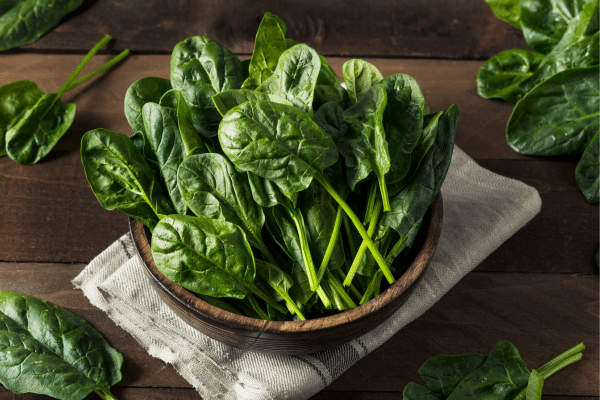
Spinach, often hailed for its impressive nutritional profile, is also an effective food choice for combating constipation. High in both fiber and magnesium, spinach helps soften stools and act as a natural muscle relaxant. The combination of these elements ensures smoother and more regular bowel movements, making spinach a staple for anyone looking to enhance digestive health.
Incorporating spinach into daily meals can be a delightful culinary experience. Whether added to a refreshing salad, blended into a green smoothie, or cooked as a side dish, its versatility ensures it can be easily integrated into various dishes. Moreover, combining spinach with other fiber-rich foods can further amplify its constipation-relieving properties.
Beans
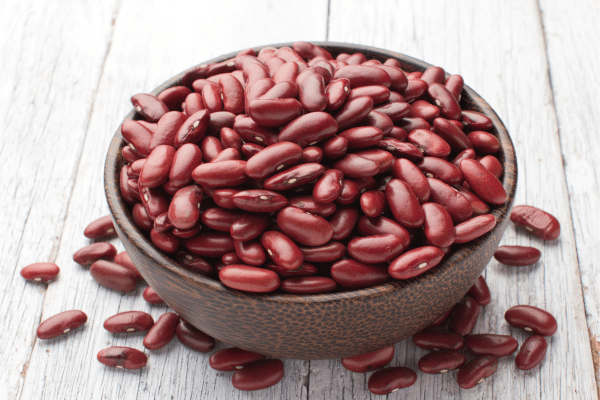
Beans, often termed the “musical fruit”, have a well-established reputation for their digestive implications. These humble legumes are packed with fiber, a crucial component for adding bulk to stools and facilitating their passage through the digestive system. Their rich nutrient profile, which includes essential proteins and vitamins, is complemented by their unique ability to regulate bowel movements.
Different varieties of beans, such as black beans, lentils, and chickpeas, can be easily incorporated into a range of dishes. From hearty soups to salads and even main dishes, beans not only add a burst of flavor but also ensure a fiber-rich meal. Regularly consuming beans, while also maintaining adequate hydration, can be a game-changer for those battling constipation.
Kefir
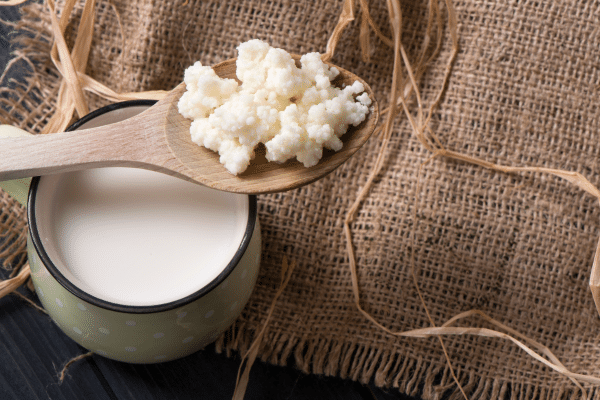
Kefir stands out in the realm of fermented dairy products, with its remarkable ability to foster gut health. It is teeming with beneficial bacteria known as probiotics. These microorganisms, when introduced to the gut, assist in breaking down food more efficiently, promoting better nutrient absorption and facilitating regular bowel movements.
The smooth, tangy flavor of kefir makes it an excellent addition to smoothies, cereals, or even as a standalone beverage. Beyond its taste, its role in introducing and maintaining a healthy balance of gut flora cannot be overstated. For those unfamiliar with kefir, starting with small portions and gradually increasing the intake can help the body adjust to its effects while reaping the benefits of improved digestion.
Prunes And Prune Juice
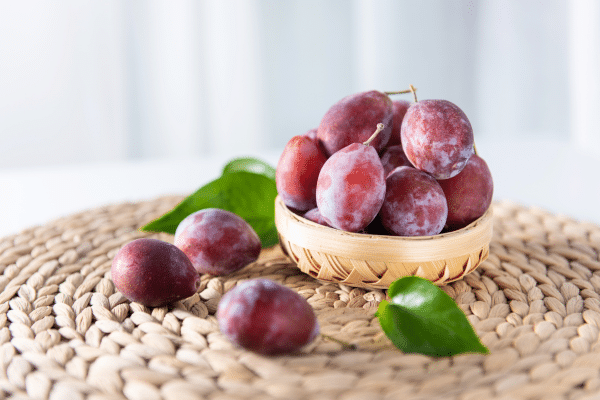
Prunes, or dried plums, have long been associated with alleviating constipation, and for good reason. Their high fiber content is complemented by the presence of sorbitol, a natural sugar alcohol that acts as a laxative when consumed. This combination makes prunes an effective natural remedy for those seeking relief from constipation.
While prunes can be eaten on their own, prune juice offers another avenue to derive the same benefits. However, it’s essential to approach its consumption with moderation, as excessive intake can lead to diarrhea. Introducing prunes or prune juice gradually into the diet and observing the body’s response ensures that one gets the benefits without potential drawbacks.
Whole Grains
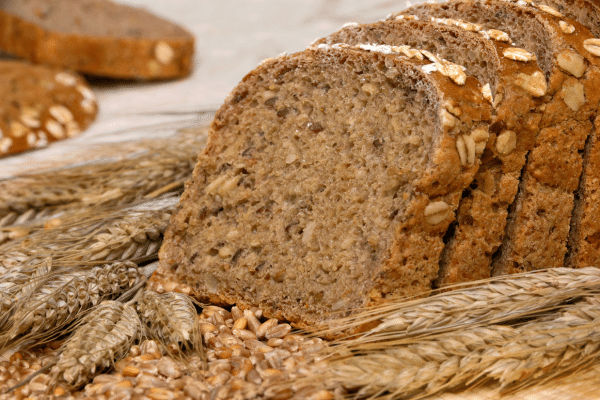
Whole grains are a cornerstone of a diet designed to combat constipation. Unlike their refined counterparts, whole grains retain their bran, germ, and endosperm. This ensures that they are chock-full of fiber, which aids in creating softer, bulkier stools that are easier to pass.
Incorporating whole grains into the diet is straightforward and delicious. Choices such as quinoa, barley, and brown rice can be used as bases for various dishes, from stir-fries to salads. Not only do these grains provide the much-needed fiber to alleviate constipation, but they also come with a plethora of other health benefits, including stabilizing blood sugar levels and reducing the risk of chronic diseases.
Chia Seeds
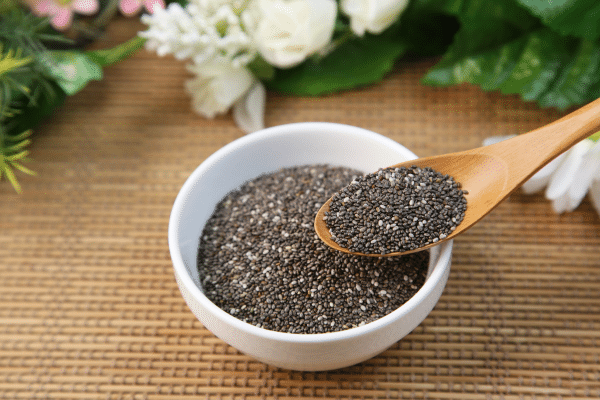
Chia seeds, tiny as they are, pack a powerful punch in the fight against constipation. These small seeds are replete with fiber, and when ingested, they absorb a significant amount of water, forming a gel-like consistency. This property not only adds bulk to stools but also ensures they remain moist, facilitating smoother bowel movements.
Integrating chia seeds into meals is both easy and versatile. They can be sprinkled atop salads, blended into smoothies, or used in baked goods. Beyond their role in combating constipation, chia seeds are also an excellent source of omega-3 fatty acids and other vital nutrients, solidifying their status as a superfood.
Kiwi
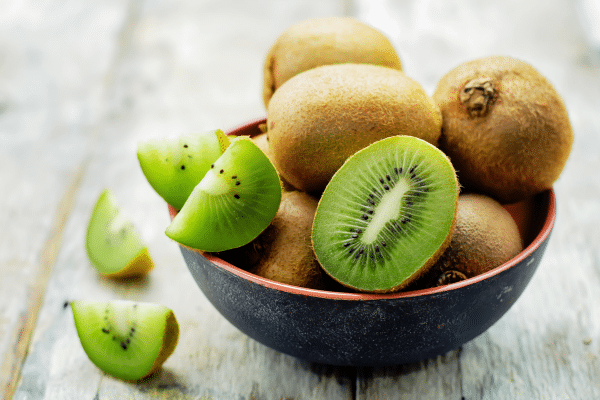
The kiwi fruit, with its vibrant green flesh and distinct taste, is more than just a delightful treat. It holds a particular benefit for those grappling with digestive woes. Kiwis are rich in actinidin, a unique enzyme that facilitates digestion by breaking down proteins. Additionally, the fiber content in kiwi plays a role in promoting regular bowel movements and easing constipation.
Consuming kiwis is a joy, given their sweet and tangy flavor profile. They can be enjoyed on their own, sliced into fruit salads, or blended into refreshing smoothies. Aside from its digestive benefits, kiwi is also packed with vitamin C and antioxidants, making it an excellent choice for overall health and well-being.
The Bottom Line
Dietary choices play a pivotal role in maintaining a healthy digestive system and preventing ailments like constipation. By incorporating fiber-rich foods, fermented products, and natural laxatives into the diet, individuals can foster better gut health and ensure regular bowel movements. It’s also essential to remember the significance of staying hydrated, as water complements the effects of fiber-rich foods. Exploring these food options, while paying heed to the body’s responses, can lead to a balanced, constipation-free life.


